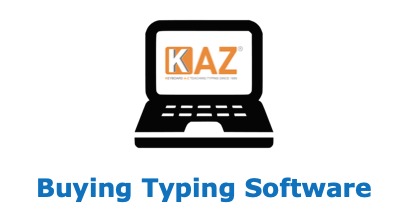
On speaking with education and business establishments, parents and individual users, the following key messages emerged about what they looked for when buying typing software.
Questions posed were as follows:
What is your main criteria when looking for typing software?
Does it have to be inclusive?
Is security and safety important?
Does pedigree play a part?
Is price important?
Does the course have to be accredited?
Does the company having a social media presence make a difference?
Do reviews, recommendations, testimonials and awards play a part?
The overwhelming majority of responses are condensed below:
What is your main criteria when looking for typing software?
The majority of individual users, schools and businesses stressed time as being an issue, so a software that was efficient, easy to use, and rendered quick results was a must!
Does it have to be inclusive?
Education and business establishments preferred an inclusive product that catered for everyone, both mainstream and neurodivergent users. Firstly, it proved the more economical choice and secondly, it allowed the whole class / neurodivergent staff to use the same software, without feeling different or segregated.
Individuals and parents of children with special education needs were extremely grateful for specialised assistive products. They all recognised the importance of learning to touch type.
Amanda McLeod - 'Research shows that handwriting improves recall and gives learners a deeper understanding of content, but if you have any form of SEND, handwriting is too slow. You need touch typing to compensate for memory issues and slower processing.’
The Good Schools Guide - 'Touch-typing has been found to help children improve reading, writing and spellings. It can be of particular benefit for children with dyslexia who find typing easier than handwriting.'
Is security important?
Security of data was of upmost importance to all, whilst safety whilst using the software was paramount to schools and parents in regard to children using the course.
Does pedigree play a part?
A known and reputable product with good pedigree seemed to reassure clients that what they were purchasing was a safe and trusted product.
Is price important?
Price was obviously a factor for many but value for money and a product that taught you a ‘life skill’ easily and efficiently was preferable.
With cuts in school budgets, an affordably priced product, with tutorials, comprehensive instruction and free IT support for teachers who were not all completely IT savvy was key.
Does the software have to end with certification?
A percentage of clients just wanted to learn how to touch type. Certification was not a must. However, higher education and business establishments preferred a software with certification from a recognised body, as they felt this recognition would help towards future careers.
Does having a social media presence make a difference?
Having a social media presence was preferable, as it showed the company was ‘live’, informative, assessable and open to all critique. Additionally, a small percentage only purchased after reading social media reviews.
Are reviews, recommendations, testimonials and awards won important?
Reviews, recommendations, testimonials and awards were of great importance to everyone we spoke to, as they were seen as insurance of the calibre of the product and highlighted the value and recognition of the software. Everyone seemed happy to purchase a product that had won awards and written about so favourably.
KAZ’s mainstream and neurodiverse typing software meets all the above points.
Copyright KAZ Type Limited 2025. KAZ is a registered trade mark of KAZ Type Limited.
Developed by : STERNIC Pvt. Ltd.